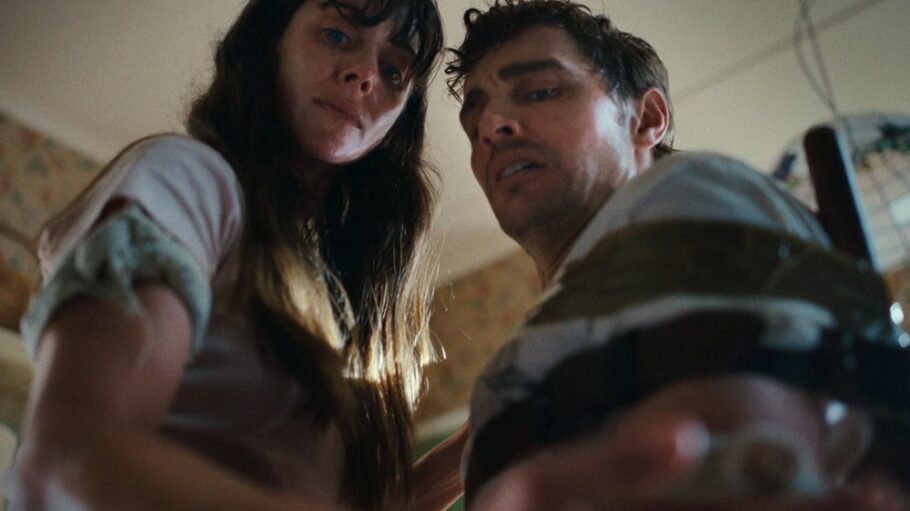The team behind the Alison Brie and Dave Franco film “Together” are pushing back on a copyright lawsuit, saying the film is “not remotely similar” to the plaintiffs’ work, “Better Half.”
“Together” was a hit at Sundance in January, selling to Neon for a reported $17 million. It is set to be released in theaters on July 30.
The producers of “Better Half” sued in May, claiming that “Together” is a “blatant ripoff” of their film, which they claimed had been offered to Brie and Franco in 2020 and which their agent had turned down. Both projects involve a couple that become physically stuck to each other through a mysterious force.
In a May 21 letter to the plaintiffs’ lawyers, obtained by Variety, attorney Nicolas Jampol argued that “Together” was independently created and that any similarities are generic and not subject to copyright protection.
“Your client does not own this concept,” Jampol wrote. “Neither do our clients. It is an unprotectable idea, one that predates all of our clients and has been explored in many films, television shows and other fictional works.”
Jampol goes on to argue that the two films explore the idea in very different ways. “Better Half” is light and comedic, he said, while “Together” is a supernatural “body horror” thriller.
“‘Together’ is the opposite of ‘Better Half’ in almost every way,” he wrote.
Love Film & TV?
Get your daily dose of everything happening in music, film and TV in Australia and abroad.
He also noted that “Together” screenwriter Michael Shanks had completed a draft and registered it with the WGA in 2019 — a year before “Better Half” was offered to Brie and Franco’s agent at WME.
“Before your client ever submitted a script to WME, Mr. Shanks already had written most of the elements your client now accuses him of stealing,” Jampol wrote. “The simple truth is that none of our clients copied a thing from ‘Better Half.’”
“Better Half,” by writer-director Patrick Henry Phelan, was released in 2023. The producers, Jess Jacklin and Charles Beale, attended Sundance and watched “Together” “in stunned silence, their worst nightmare unfolding,” their lawsuit alleges.
“Scene after scene confirmed that Defendants did not simply take ‘stock ideas’ or ‘scenes a faire’ but stole virtually every unique aspect of ‘Better Half’s’ copyrightable expression,” the suit alleges.
Among other similarities, the lawsuit notes that both films reference the Spice Girls and Plato’s Symposium.
Jampol responded that such references are not surprising — the Spice Girls’ debut album included the song “2 Become 1” — and that the coincidence is unprotectable.
Daniel Miller, the plaintiffs’ attorney, said that claim “borders on the ridiculous” in a June 9 response to Jampol’s letter.
Miller also argued that both films have eerily similar sequences in which the protagonists are attached at the genitals and have to hide from a romantic interest outside the bathroom.
“We are confident a jury will see this sequence for what it is: a replication of ‘Better Half’s’ original
expression,” Miller wrote.
Miller asked for evidence to back up the defendants’ claim of independent creation, including the screenplay draft registered with the WGA and subsequent drafts.
“The defendants in this case are doing their very best to explain away the unexplainable, but the evidence speaks for itself,” Miller said in a statement to Variety. “It is telling that they have refused to share the prior script they claim was registered in 2019. We look forward to sharing with the court why there is no plausible explanation for the staggering similarities between these two works.”
In his letter, Jampol urged the plaintiffs to drop the lawsuit, warning that if they pursue it further the defendants will seek compensation for their attorneys’ fees.
“Accusing people of copyright infringement — especially ones who have dedicated their lives to creating original works and performances — should not be done lightly,” Jampol wrote. “This is particularly true when the works are as obviously dissimilar as these.”
Jampol declined to comment, as did spokespeople for Neon and WME. Spokespeople for Franco, Brie and Shanks did not respond to a request for comment.
From Variety US































